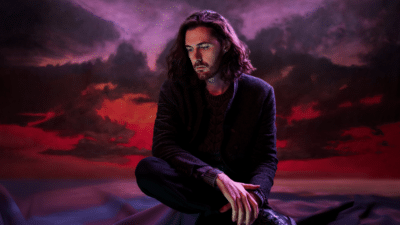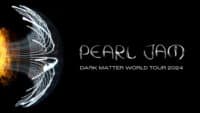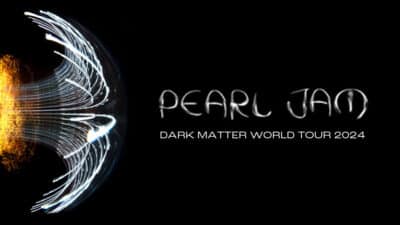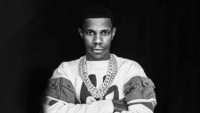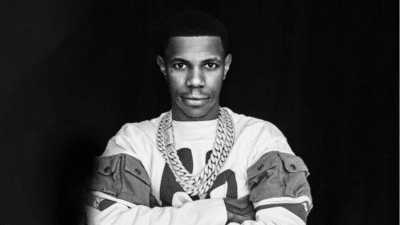Music
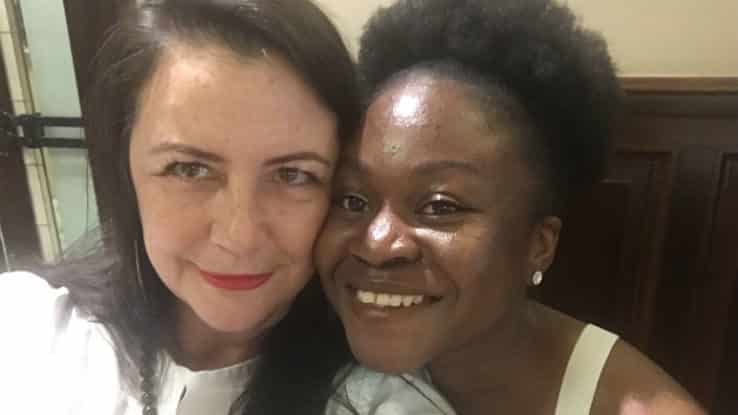
Q&A
Industry Q&A: Helen Marcou of Bakehouse Studios & SLAM
Helen Marcou, co-founder of Bakehouse Studios and SLAM, reflects on Australia's live music industry and the changes afoot.
This month, we’re chatting to all-round Aussie music legend, Helen Marcou. Co-founder of Bakehouse Studios and SLAM (Save Live Australia’s Music). Helen is a leading figure in the Australian music community, who’s dedicated much of her career to strengthening the country’s music culture.
Helen founded the now-iconic Bakehouse Studios, alongside her partner Quincy McLean, 28 years ago, and it’s since become a bustling hub for live music, art and creativity in Melbourne.
The duo went on to form SLAM in 2010, a grassroots activitist group which kicked off its work with a 20,000-strong march along Melbourne’s Parliament House in support of live music. It instantly became the largest cultural rally in Australia’s history, and as Helen tells us below, began a snowball of activity for the grassroots group.
Needless to say, Helen has a tip or two to share when it comes to the topics of music, community and activism, so we’re thrilled to have her take part in our latest Industry Q&A.
Read on for Helen’s top tips for breaking into the music industry, as well as a reflection on her biggest career moments to date and upcoming projects:

Photo credit: Suzanne Phoenix
Hi Helen! You’ve got so many amazing projects underway, how do you split your time between them all?
Bakehouse Studios is our primary project and place of work. My partner founded Bakehouse 28 years ago and it’s this crazy, rambling, hub of music, art and all sorts of others things under one roof. That’s our home and a lot of things happen through there, everything from the events that we run, to the rehearsals, to pre-production, to the recordings and everything else. In terms of other work that I do, a lot of it is based on volunteer hours of advocacy, and that came about after we founded SLAM (Save Live Australia’s Music) in 2011, around some liquor licensing policy that was crippling our live music scene. Because we were very independent and quite central in the Melbourne music community, it allowed us to take the helm and form SLAM. After we did the big rally in 2011, where 20,000 people marched, that’s been well documented, it snowballed. The momentum of this advocacy and also our knowledge base grew, so for many years I particularly was just head down working on regulatory reform, whilst running Bakehouse. In the last few years, creativity has been really important to me because it’s important to have that balance. Anyone’s vertical hold will go reading regulatory reforms or statutory planning, and all that stuff, so in terms of creativity and production that’s been really important to me and that’s the balance that makes things exciting. Plus, I like to work on a lot of projects at once, it’s probably syntagmatic of modern life that we like to be doing a lot of things.
You’re also involved with Your Choice?
In 2015, from the Live Music Roundtable, that I’ve been a member of, an offshoot was the Sexual Assault and Harassment Taskforce in Licensed Venues, and that was based on an educational campaign around training. [Your Choice] looks at personal accountability and using this as a peer to peer resource to hope behavioural change. I got involved as part of a committee to help that kick off at the beginning. Now they have a board structure and they’ve got something like 300 venues, festivals and industry on board, and have created quite a comprehensive recourse for the industry.
Do you ever feel overwhelmed by the music industry?
Yeah regularly, I do. I run a business, I’m a volunteer, I dabble in a whole lot of projects outside of that business, for example I’ve recently curated a stream for the Melbourne Writers Festival, I often curate talks, I run a visual art project at Bakehouse, I’m a peer assessor for both the Australian Council and Creative Victoria, and a judge on a number of judging panels, and I have children, and elderly parents, and all the normal things in life. I quite regularly feel, not so much consumed by the work because it does feel like a mountain at times, it’s just a process working through that, but it’s life. If you don’t allow time to stop and smell the roses, it can became an exhausting project. In 2015, I had deep activist fatigue from years of volunteering, and I was about to retire from SLAM, then I got on board with the sexual assault and harassment stuff, because I felt a deep moral obligation. Sometimes friends are really important and that’s what helps me, and family, and a good support network. I have a series of particularly strong women in my life that will just text me or send a private message, and it’s really important to have support mechanisms. Also the treadmill of being expected to be at everything, so I’m really selective with my social engagements now. Also, careful with mental health and rally moderate with drinking and things like that which effect day to day life.
With that in mind, what makes all your hard work feel worthwhile?
The things that make it worthwhile are the big picture things, some things I can’t even see because I’m so buried down on the detail. Occasionally when we do get a great reform through or there’s been breakthroughs around gender equity; a great example is looking how language is used and that our men in the industry are really growing as allies as well and it’s not just women putting out the emotional labour. As a community as a whole, when we come together to make change, the SLAM rally was really indicative of a generational shift I think. Again, the sexual harassment taskforce, the work around the training and all the venues that have come on board, and the appetite from the general community to have safer and more dignified nights out. That’s what is really important to me and makes it worthwhile. I appreciate recognition and awards, and things like that, they’re gentle encouragement for me, but it’s the bigger picture stuff that makes it worthwhile.
What advice would you give young people who aspire to a career in the music industry and in particular those who want to get involved in making a difference in the community?
With music to begin with, Bakehouse has always been really independent, so we did it our way. My advice is, don’t wait for the gatekeepers to open the gate for you, do your own thing. Independence has been really crucial for the way we’ve run things. We’ve never had large financial baking or been part of a larger, corporate structure. We’ve had a grassroots approach to the way we do things. Again with community, volunteering is a really great way to jump on-board and meet people, whether it’s at festivals, or with organisations. Look at the hybridity of the arts, that’s really important too. The music industry isn’t this standalone beast, we work with other art forms and for young people, working or volunteering in theatre if you have an interest in music is a really great opportunity, or with the visual arts, or live arts. They all come together to fill those interests for career paths.
Looking ahead, what do you think will be the biggest game changer for Australian music in the next 5 to 10 years?
Technological breakthroughs will change the way we consume and enjoy music, but because I have a particular interest in a live music background, I think we’re seeing a shift in the way people are represented on stage, diversity and the voice reflects what Australian music is. That comes from representation of different people and I’m also really interested in our First Nations artists, it’s incredible to see them finally having a platform and we should all take their lead and step behind them in the future.
Which acts are you most excited to see live?
Alice Skye is a young artist that was recently the recipient of the First Nations International Women’s Day Emerging Artist Award. Other acts to catch would be Odette, who I think is such a standout star; her qualities of poetry and bringing in her heritage are amazing. I’ve still got goosebumps thinking about Sampa the Great’s set at Splendour; thinking about what she brought to the stage and the story she gave us, from this young Zambian woman from Sydney. The next thing I’m working on is at Melbourne Writers Festival, where Australian songwriters come together to tell their stories in a little series called Duets. I’m really excited to have curated that. Melbourne is an International City of Literature but we’ve very rarely had songwriters speaking at our Writers Festival, so this is a wonderful platform to talk about their inspirations for their writing. Mojo Juju, who has the video of the year in my opinion, will be taking about her craft with Joel Ma, Sarah Blasko and Ryan Downey off the back of their sold out tour, Julia Jacklin with Paul Dempsey, Ainslie Wills with her new song, Society, will be in conversation with a writer she really respects, Glenn Richards, from Augie March. So there’s a really great stream that I’m proud of. See the full programme for Duets at mwf.com.au/search/duets.
What do you think makes Melbourne’s music scene so unique?
Well, the Melbourne music scene was built on the foundations of community and we have some of the best, and richest, community radio in the world. Also if you go back into the ‘80s, small bar licences proliferated in Melbourne, so it gave this fertile training ground for young artists to be able to hone their skills. In Melbourne alone we’ve got something like 553 venues and a really multi-aged grouped, multi-genre, sophisticated music-sign audiences, who consume live music. It’s something that they’ve grown up with, so it’s in our DNA at this point in time. It’s having great community radio that informs a number of venues and music-going audiences, as well as a really supportive government, who have invested $22 million. We know that every one dollar spent in the arts, brings you back $10 in investment, so economically it’s wise and creatively we’ve got a robust and effective ecosystem in Melbourne. This is something that will continue for a long time but it’s always fragile, and that’s why we have to keep our eye on it all the time because factors can tip the balance at any time.





